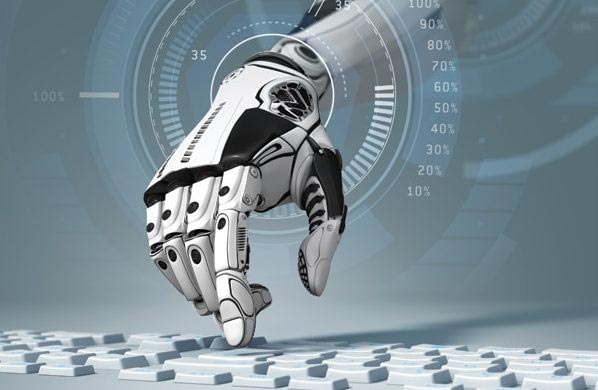Techology advances still grow at an ever increasing rate, so what are the major trends to look out for in 2020?
AI-as-a-service
Artificial Intelligence (AI) is one of the most transformative tech evolutions of our times and most companies have started to explore how they can use AI to improve the customer experience and to streamline their business operations. This will continue in 2020, and while people will increasingly become used to working alongside AIs, designing and deploying our own AI-based systems will remain an expensive proposition for most businesses.
For this reason, much of the AI applications will continue to be done through providers of as-a-service platforms, which allow us to simply feed in our own data and pay for the algorithms or compute resources as we use them.
Currently, these platforms, provided by the likes of Amazon, Google, and Microsoft, tend to be somewhat broad in scope, with (often expensive) custom-engineering required to apply them to the specific tasks an organization may require. During 2020, we will see wider adoption and a growing pool of providers that are likely to start offering more tailored applications and services for specific or specialized tasks.
5G data networks
The 5th generation of mobile internet connectivity is going to give us super-fast download and upload speeds as well as more stable connections. While 5G mobile data networks became available for the first time in 2019, they were mostly still expensive and limited to functioning in confined areas or major cities. 2020 is likely to be the year when 5G really starts to fly, with more affordable data plans as well as greatly improved coverage, meaning that everyone can join in the fun.
Super-fast data networks will not only give us the ability to stream movies and music at higher quality when we’re on the move. The greatly increased speeds mean that mobile networks will become more usable even than the wired networks running into our homes and businesses with huge implications for ‘the internet of things’.
Autonomous Driving
While we still aren’t at the stage where we can expect to routinely travel in, or even see, autonomous vehicles in 2020, they will undoubtedly continue to generate a significant amount of excitement.
Tesla chief Elon Musk has said he expects his company to create a truly “complete” autonomous vehicle by this year, and the number of vehicles capable of operating with a lesser degree of autonomy – such as automated braking and lane-changing – will become an increasingly common sight. In addition to this, other in-car systems not directly connected to driving, such as security and entertainment functions – will become increasingly automated and reliant on data capture and analytics
It won’t just be cars, of course – trucking and shipping are becoming more autonomous, and breakthroughs in this space are likely to continue to hit the headlines throughout 2020.
Personalized and predictive medicine
Technology is currently transforming healthcare at an unprecedented rate. Our ability to capture data from wearable devices such as smartwatches will give us the ability to increasingly predict and treat health issues in people even before they experience any symptoms.
When it comes to treatment, we will see much more personalized approaches.
Thanks to recent breakthroughs in technology, especially in the fields of genomics and AI, it is giving us a greater understanding of how different people’s bodies are better or worse equipped to fight off specific diseases, as well as how they are likely to react to different types of medication or treatment, so expect new applications of predictive healthcare and the introduction of more personalized and effective treatments to ensure better outcomes for individual patients.
Computer Vision
In computer terms, “vision” involves systems that are able to identify items, places, objects or people from visual images – those collected by a camera or sensor. It’s this technology that allows your smartphone camera to recognize which part of the image it’s capturing is a face, and powers technology such as Google Image Search.
As we move through 2020, we’re going to see computer vision equipped tools and technology rolled out for an ever-increasing number of uses. It’s fundamental to the way autonomous cars will “see” and navigate their way around danger. Production lines will employ computer vision cameras to watch for defective products or equipment failures, and security cameras will be able to alert us to anything out of the ordinary, without requiring 24/7 monitoring.
Computer vision is also enabling face recognition, which we will hear a lot about in 2020. However, as the use of facial recognition will grow in 2020, we will also have more debates about limiting the use of this technology because of its potential to erode privacy and enable ‘Big Brother’-like state control.










